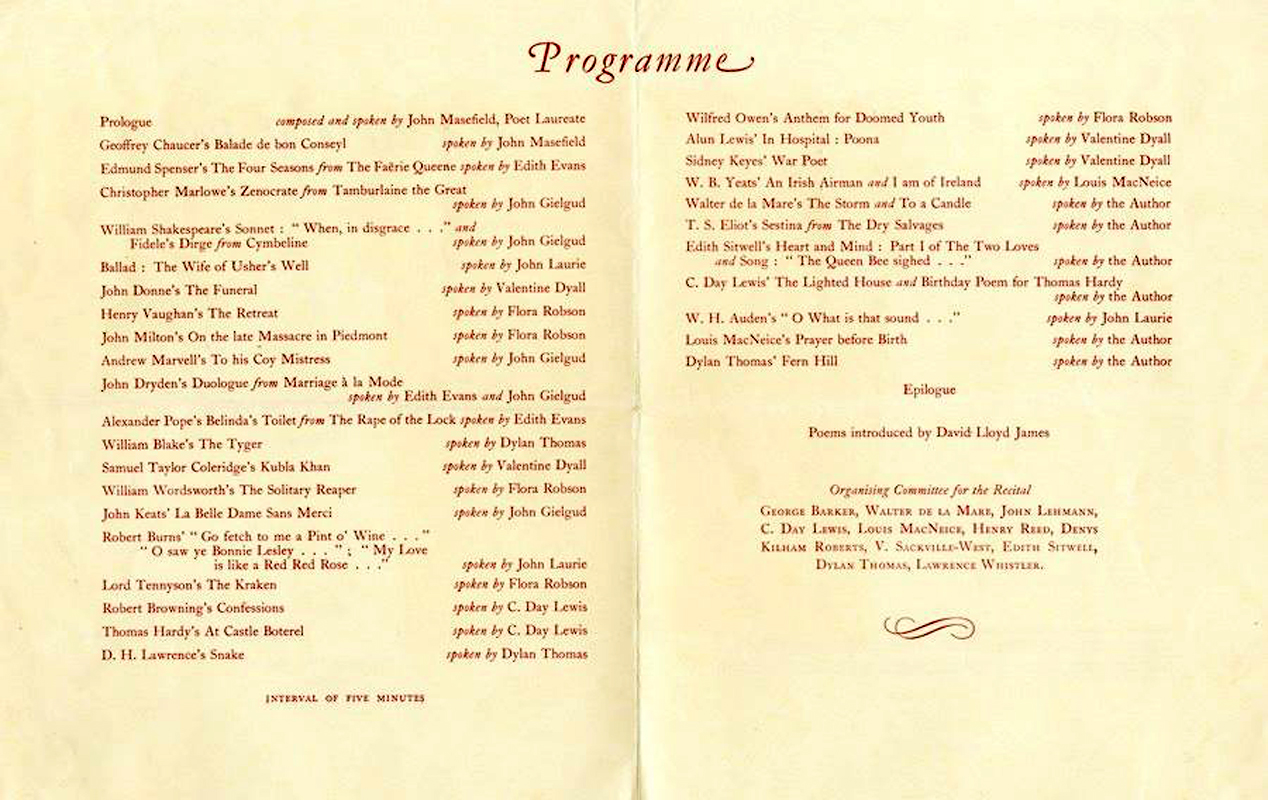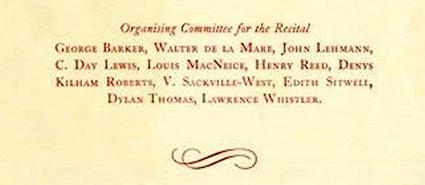'Someone's boring me. I think it's me.'
Dylan Thomas recorded dozens of hours worth of spoken word performances for Caedmon Records, starting with the album
A Child's Christmas in Wales and Five Poems, in 1952. To celebrate a half-century of spoken word publishing, Caedmon (now part of
HarperAudio) has published an eleven-CD set of the complete recordings,
Dylan Thomas Unabridged.
The collection includes his most famous poems, "Fern Hill" and "Do Not Go Gentle Into That Good Night"; prose works such as
Adventures in the Skin Trade and
Quite Early One Morning; as well as his final play,
Under Milk Wood.
For a limited time [actually, since 2002!],
Salon.com is offering
free downloads of the
complete Dylan Thomas Caedmon Collection, with whole discs compressed as .zip files, or as individual .mp3s. (If you're not a registered member, you'll have to sit through an advertisement, but it's more than worth it. Get a
day pass.)
Disc 5 of the set contains Thomas reading two poems by Henry Reed: "
Naming of Parts," and "
Chard Whitlow" (right-click and select "Save as" to download .mp3s). Although I am dismayed they could spell neither Reed's name nor 'Whitlow' correctly. Thomas' interpretation of Reed's poems is superb, if a little heavy on the satire. He even does a passable impersonation of T.S. Eliot.
In a 1955 letter to her brother, Edith Sitwell mentions hearing a recording of Thomas reading "Chard Whitlow":
‘...that naughty Dylan made a record (whilst reciting at Harvard) of Henry Reed's really brilliant parody of "Burnt Norton" in Tom's exact voice! (Don't tell anyone, as it will 'get round'.) Each line ended with an absolute howl of laughter from the audience, but Dylan, with noble dignity, paid no attention to these interruptions... The record has not been published.’ (Selected Letters of Edith Sitwell, edited by Richard Greene, p. 359.)
I can't be sure without checking a good Thomas biography, but I think the link above may be the exact recording Sitwell is referring to.
By the way: this opening speech,
"A Visit to America—An Irreverent Preamble", is flipping hysterical.









